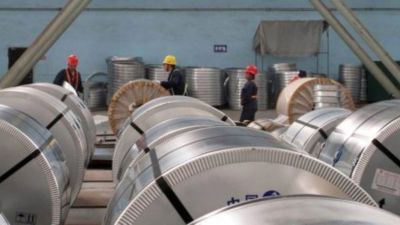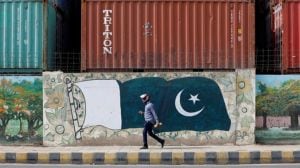Whether, weather, wither?
Several senior leaders of the BJP have reiterated that general elections to the Lok Sabha would be on schedule in the autumn of 2004. On his...

Several senior leaders of the BJP have reiterated that general elections to the Lok Sabha would be on schedule in the autumn of 2004. On his part, Union Finance Minister Jaswant Singh has been emphatic in stating that he will present the Union budget on the scheduled date in February. Political pundits, however, believe that the jury is still out on that decision. Meanwhile, Prime Minister Atal Bihari Vajpayee has flown away to the Commonwealth Heads of Government Meeting in Nigeria. It is unlikely that he will reveal his mind on the subject for some time since there are several political imponderables that even the currently resurgent BJP has to take into account before figuring out the pros and cons of an early election.
Finance minister Singh8217;s bravado on presenting a 8220;regular budget8221; may have been meant to suggest that there will be no political downside to the kind of exercise he has in mind. That may well be so, since he will not only be reducing tariffs but giving fiscal policy an 8220;agricultural orientation8221;, which is unlikely to cost votes. In itself the kind of budget that Singh will have to present next February need not be too harsh, even if the fiscal challenge is daunting. In fact, he may further postpone a decision on value-added taxation, given the increasing professional criticism of the idea. Expectations about the next monsoon rather than concerns about budgetary policy may finally shape the ruling party8217;s decision on the timing. The failure of the north-east monsoon and the re-emergence of the El Nino factor have raised new concerns about the next monsoon. Of course, it is far too early to make any reliable forecasts and rainfall may not be as critical a factor in shaping electoral outcomes as political alignments between various parties. However, given the fact that development issues and economic well-being have come to the fore in election campaigns, and given that the BJP may want to continue toning down its communal rhetoric, a summer election may appear more attractive to the ruling coalition than an autumn election.
From the economy8217;s point of view this would certainly be better because the government is unlikely to be as focused on key economic issues in the run up to an election, despite the stronger position it finds itself in after the recent assembly elections. There are important policy decisions to be taken in the area of fiscal policy, including on privatisation, that will not be taken before elections. However emboldened the prime minister may be after the recent verdict he is likely to play safe in areas where difficult choices have to be made. If all elections scheduled for 2004, including all the assembly elections, are combined with Lok Sabha elections and conducted in May 2004, the period of political grandstanding will be reduced and the government can get down to work by June.
- 01
- 02
- 03
- 04
- 05






























